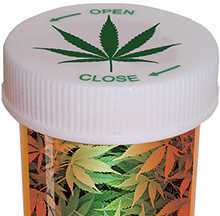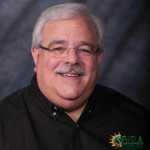Florida Agriculture Bracing For, Ready To Embrace Medical Marijuana’s Impact
 As of posting, there were 21 states (and counting) in the U.S. that have approved the use of medical marijuana. Florida is inching closer to the fray with the recent passing of a bill and its subsequent signing by Gov. Rick Scott that allows the medicinal use of a non-euphoric strain of marijuana called “Charlotte’s Web.” Extract from the plant can be used to treat patients suffering from epileptic seizures and other related disorders. The legislative leap could be a gateway to the approval of legalizing medical marijuana, which will be voted on in November’s statewide ballot.
As of posting, there were 21 states (and counting) in the U.S. that have approved the use of medical marijuana. Florida is inching closer to the fray with the recent passing of a bill and its subsequent signing by Gov. Rick Scott that allows the medicinal use of a non-euphoric strain of marijuana called “Charlotte’s Web.” Extract from the plant can be used to treat patients suffering from epileptic seizures and other related disorders. The legislative leap could be a gateway to the approval of legalizing medical marijuana, which will be voted on in November’s statewide ballot.
The highly political/socioeconomic issue has thrust the state’s nursery growers into the spotlight. Someone has to grow it, right? With only five licenses available to grow, extract, and distribute Charlotte’s Web, it would seem the best qualified operations are holding quite the coveted position. Or are they?
Ben Bolusky, VP/CEO of the Florida Nursery, Growers & Landscape Association (FNGLA), says this deal involves a lot more than just growing plants. However, along with the added responsibility and ramped-up regulation, comes opportunity. Bolusky took time to participate in a brief Q&A session to analyze the pros and cons of this growing trend.
 The qualifications for eligible growers are pretty specific and strict. How were they determined?
The qualifications for eligible growers are pretty specific and strict. How were they determined?
Bolusky: The requirement a nursery be in business for a continuous 30 years and have an available 400,000 plant inventory surprisingly popped up at the last minute, and the train sped out of the station to passage on the last day of the legislative session. FNGLA did not write nor did FNGLA propose the amendment. Throughout the session, FNGLA emphasized if there was ever going to be passage of any medical marijuana bill, then the legislators needed to look to Florida agriculture, particularly Florida’s nurseries, rather than opening up a back door allowing out-of-state businesses or fly-by-night operations to set up shop in Florida. We repeatedly said legislators should not leave Florida agriculture on the cutting room floor. So, on the one hand, FNGLA is very pleased they listened, recognizing Florida’s nurseries have a significant role to play. On the other hand, the legislature’s thresholds are arbitrarily high and prevent many growers from eligibility. Only the legislature can change these statutory criteria, and it may very well consider doing so when it meets next in spring 2015.
Why would an established, qualified nursery grower want to consider entering into this endeavor?
Bolusky: First, this certainly represents a new business opportunity. Growing plants for pharmaceutical purposes has long-term potential and Charlotte’s Web poses an initial foothold. Second, many nursery growers are very compassionate people and this is a chance to do something to perhaps ease the suffering of many seizure-ridden children and other patients. Several nursery growers have shared with me personal stories about their family members or friends who experience debilitating symptoms for which Charlotte’s Web may offer some relief.
With such a potentially lucrative proposition, why wouldn’t a qualified grower want to take this on?
Bolusky: It’s important to put this in its proper perspective. The bill passed by the legislature was restricted solely to Charlotte’s Web — a non-euphoric, limited strain of marijuana. When it passed the bill, the legislature put its toes in the water limiting the product, patients, and marketplace in Florida. So, there are questions about how lucrative this limited product and its market really can be.
There are even more substantive reasons why a qualified grower may elect not to take this on. A grower will be required to put up a $5 million performance bond. Conceivably, nurseries will need to purchase the extraction equipment, provide heightened security, hire an on-premises medical doctor, perhaps enhance his or her greenhouse infrastructure, undergo a thorough background check, pay whatever fee the Florida Department of Health may impose, and possibly abide by unfamiliar food and drug regulations.
Lastly, the bill stipulates each of the five nurseries selected by the Florida Department of Health must serve as the plant producer, oil extractor, and dispensary of the Charlotte’s Web product to patients. And, to top it all off, there will probably be some nursery growers who will be uncomfortable using a plant that the federal government has not de-criminalized. The bottom line is many qualified growers will wait until the Florida Department of Health issues its rulemaking to see exactly what it will require of the growers.
With the acceptance of Charlotte’s Web, how would a yes vote on the November ballot to legalize medical marijuana change things?
Bolusky: Legislators felt genuine tugs on their heartstrings when listening to the emotionally convincing pleas of parents with afflicted children. However, passage of the constitutional amendment on Florida’s statewide ballot this November will expand the availability of medical marijuana products and forms, and — by so doing — dramatically increase the market. While production, extraction, and dispensing of Charlotte’s Web is limited to five nurseries under the legislation, the ballot initiative is not bound by such criteria. While the Florida Department of Health may look to the general Charlotte’s Web framework established by the legislature, it may not replicate the arbitrary criteria of years in business and plant inventory. In looking at the market needs, the agency may lower such thresholds so more nurseries can qualify or the Department of Health may explore entirely different frameworks. FNGLA will be engaged.
What does this ultimately mean for Florida agriculture?
Bolusky: Certainly, unless the federal government decriminalizes it, no one expects marijuana for medical purposes to be grown in open fields in Florida. So, there may be increased greenhouse construction opportunities. Marijuana may be a springboard to look more closely at a whole palette of different plants for new or overlooked pharmaceutical and medicinal herb uses. Hey, who would have thought 20 years ago that Florida agriculture would become leaders today in producing plants for biofuels?
Anything else you would like to add on the subject?
Bolusky: This is going to be a highly regulated process. Nothing is ever as simple as it seems, and no one is going to get rich overnight.









